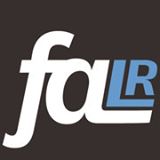
Larry Lessig will visit UNC on Monday, and we will confess to feeling a bit geeked out at the UNC Center for Media Law and Policy.
What is it about Lessig that continues to captivate political activists, hacktivists and academic observers some 15 years after he was first elevated into the limelight as a special master in the Microsoft antitrust case?
I can’t claim any special understanding of Lessig’s magnetism beyond what many others have said and written in the past. He is obviously not without his critics and detractors. But there are a few insights I can share about what makes him an unusual legal scholar and uniquely qualified, I believe, to root out corruption in government.
He’s someone who reaches and engages his audience. Lessig’s first blog was followed closely by legal scholars, the tech community and others interested in copyright reform. There, he regularly engaged with those who posted comments and critiques, many of which were as interesting and thoughtful as Lessig’s own posts. In several of those posts, he began to envision a plan to change Congress, eventually the start of his Change Congress/Fix Congress/Rootstrikers movement. His move into the study of institutional corruption was prompted by years of uphill battle against the special interests entrenched in copyright legislation – and in the pockets of congressional representatives seeking re-election. Copyright wasn’t going to change without real change in how Washington worked.
I added my two cents and theorized about how such a movement might gain mass media attention. To my surprise, we engaged in a back-and-forth email discussion, and I was off to Washington, D.C., to help out with his initial announcement to launch Change Congress. I was one of many who found themselves in this position.
But I’m just another academic.
On another occasion, I went to Cleveland to see Larry speak to a group of reform-minded Clevelanders about his efforts to change Beltway culture. The audience was interesting and varied and included a gentleman hiding in the back of the room who struck me as a Tea Party supporter. (I lived close to Tea Party activists in the Midwest for several years, so I had a good sense of who they were and what they wanted at a grassroots level.) Out of all the wonks, activists and academics in the room, it was this one young man that Larry seemed most compelled to talk to and to answer his questions and persuade. Lessig is, as he says, “cross-partisan” not “bi-partisan.”
He’s someone who has publicly changed his mind, but who is more authentic for having done so. Americans love a good story, but I think they especially like a credible story. Lessig’s is a story of right to left. Raised a Reagan Republican, he experienced a sea change in thought studying abroad. Increasingly, he has taken on the rhetoric of the activist, referring to Dr. Martin Luther King and pledging justice in the wake of Aaron Swartz’s death. This is not a Lessig we would recognize before the U.S. Supreme Court in 2003. It’s an unapologetically public journey of change, and he has taken many of us – willingly — along with him.
He understands and embraces the passion of youth. In Remix, Lessig warned of a war against youth culture and a stifling of innovation under an increasingly repressive copyright regime. He understood that new generations would see code as their printing press, with new possibilities and social upheavals on the horizon as a result:
“Now I worry about the effect this war is having upon our kids. What is this war doing to them? Whom is it making them? How is it changing how they think about normal, right-thinking behavior? What does it mean to a society when a whole generation is raised as criminals?”
His words were tragically prescient. Aaron Swartz’s death has been a watershed moment in the copyright wars – a moment that is mobilizing the Internet in new ways.
He listens more than he talks. His unique presentations are legendary, and hundreds will flock to hear them. He can talk for more than a solid hour and hold the attention of everyone in a room. But if you watch Lessig away from the podium, he’s listening and asking questions more than he is talking — and particularly listening to folks at the grassroots. Away from the microphone, he is an observer and often the quietest person in the room.
He gets tech. And tech gets (and admires) him. There are few (if any) legal experts who understand technology as well as Lessig. He is as at home in Internet protocol as he is in intellectual property law. He speaks in code and is comfortable in geekdom. He likes learning from them. That has endeared him to that community.
Finally, he’s a constitutionalist. Perhaps others have said this of him. I realized today that this year is the tenth anniversary of Eldred v. Ashcroft, the U.S. Supreme Court case challenging the Copyright Term Extension Act, the case Lessig argued in front of the Court on behalf of Eldred. Constitutionalism recognizes that the document isn’t just a series of rules – it’s a series of rules that limit government on behalf of the people. Eldred was all about limiting the government’s reach. Lessig’s new fight is about limiting the effects of special interests on that governance.
With so much more at stake, we can only hope his new battle is more successful.
 On October 12, 2013, we will be partnering with the First Amendment Law Review to help host their annual symposium, which will be focused on the 50th anniversary of the Supreme Court’s landmark ruling in New York Times v. Sullivan. We’ll post more information about the symposium in the next few weeks, but if you are a scholar who writes in this area, you may be interested in submitting a paper to the First Amendment Law Review (note: the deadline is October 1). Here is their call for papers:
On October 12, 2013, we will be partnering with the First Amendment Law Review to help host their annual symposium, which will be focused on the 50th anniversary of the Supreme Court’s landmark ruling in New York Times v. Sullivan. We’ll post more information about the symposium in the next few weeks, but if you are a scholar who writes in this area, you may be interested in submitting a paper to the First Amendment Law Review (note: the deadline is October 1). Here is their call for papers:
